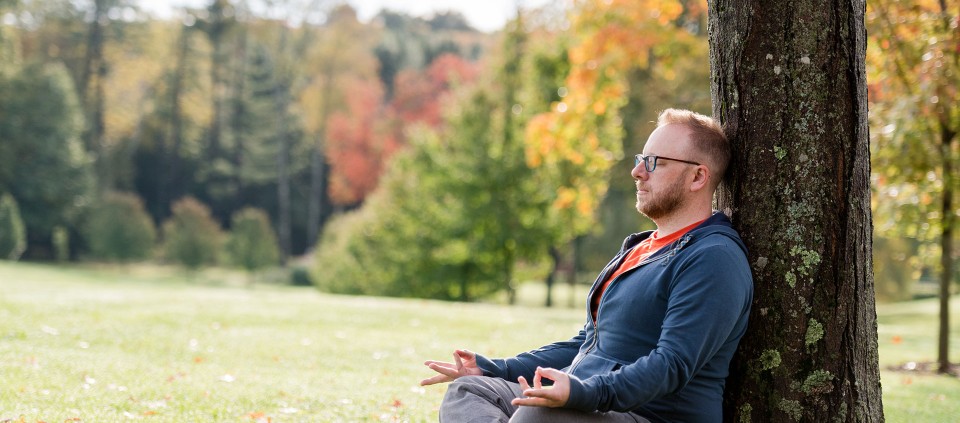The Slow Revolution: Why and How to Change Gears

by Kimberly Jordan Allen
Life seems to be moving faster than ever. We can access the entire world at the click of a button, at lightning speed. It’s a time when it's harder to unplug, when tech-free schools are a luxury for the Silicon Valley set. We're struggling to keep up, while yearning for a slower pace.
Today, slowing down and stemming the tide of information feels revolutionary. At the same time, shifting gears has never been more important for our physical and mental health. Studies show that slower activities, or practices that cultivate slowing down—meditation, forest bathing, art, creating and playing music, fiber arts, cooking, and more—are deeply restorative. They can minimize anxiety and stress, benefit cardiovascular health, and even enhance our immune function.
So, if slowing down is an act of revolution in our day and age, how do we make it happen? And how important is it, really?
Research shows that when we intentionally focus on being present with our surroundings, particularly in the context of nature, we positively impact overall well-being. Forest bathing, for example, has been shown to decrease levels of cortisol (the stress hormone) and significantly increase parasympathetic neurological activity, which controls our “rest and digest” mode. Dialing back the action of the sympathetic nervous system—the “fight-or-flight” response that’s triggered by every ping and notification—means less stress and increased positive feelings. Who doesn’t want more of that?
Unplugging and leaving technology behind is another key component of slowing down. When we have our phones in hand, it’s too easy to want to take pictures. Suddenly there are notifications to pull us out of the IRL experience. Studies show that the proximity of a device impacts cognitive function and immediately triggers an addictive pattern in the brain. Speed is built right in: Technology trains us to move toward the brighter, faster, flashier, instead of surrendering into quieter, less active experiences.
“You don’t need to be a scientist to know that too much, too fast, too often, is not healthy. It is simple logic that rest is just as important as action if you want to maintain balance and wellness,” says Steven Leonard, a Lead Faculty member for the Kripalu School of Yoga.
But the research substantiates the many reasons to back away from devices and embrace a slower lifestyle. Aside from the concerns around mental health, scientists and legislators have long warned about the threat to physical health. There’s never been a better time to change the pace. And the first step is noticing how fast we’re really going.
Here are some tips from Steven to help us slow down.
Observe with compassion. Take a moment, right now, to notice your inner and outer environment. Is the phone nearby? Are you on your laptop? Music playing? Meetings to attend? Assignments due? Things awaiting your attention? Simply observe what’s happening around you and inside you—and then notice if this moment of awareness creates a natural shift in your pace.
Simplify your schedule. Instead of squeezing things in or feeling the crunch, take charge of your time. What can you let go of? What can you say no to? What can you postpone in order to create more space? Take control and cultivate calm.
Get there early. This is a simple way to subvert the feeling of being on high speed all the time. “If you end up arriving at your destination early, rather than pull out your phone, you could take some deep breaths and enjoy a few minutes of not-doing,” Steven suggests.
Spend time in nature. “Nature is not in a rush,” Steven notes. “The trees, clouds, wind, and sun are all moving, but it’s a different quality of movement. Take some moments each day to attune to the movement of nature.”
Exercise. This can seem antithetical, since we often move fast when exercising, but this is the good kind of fast—because it helps slow down our busy brains and feel more embodied. Research shows that consistent exercise lowers stress levels, benefits sleep, increases mental alertness, and protects against depression and anxiety.
Trade in your smartphone for a flip phone. This is truly revolutionary. “I still have a flip phone and it is a relief to not be able to check email or get online every second of the day,” says Steven.
Whatever method you choose to help you change gears, it’s important to remember that slowing down doesn’t mean missing out. We are only gaining when we fall back from the pack—gaining time, clarity, and a greater sense of connection to ourselves, our world, and each other.
Kimberly Jordan Allen is an award-winning writer, editor, and content strategist.

